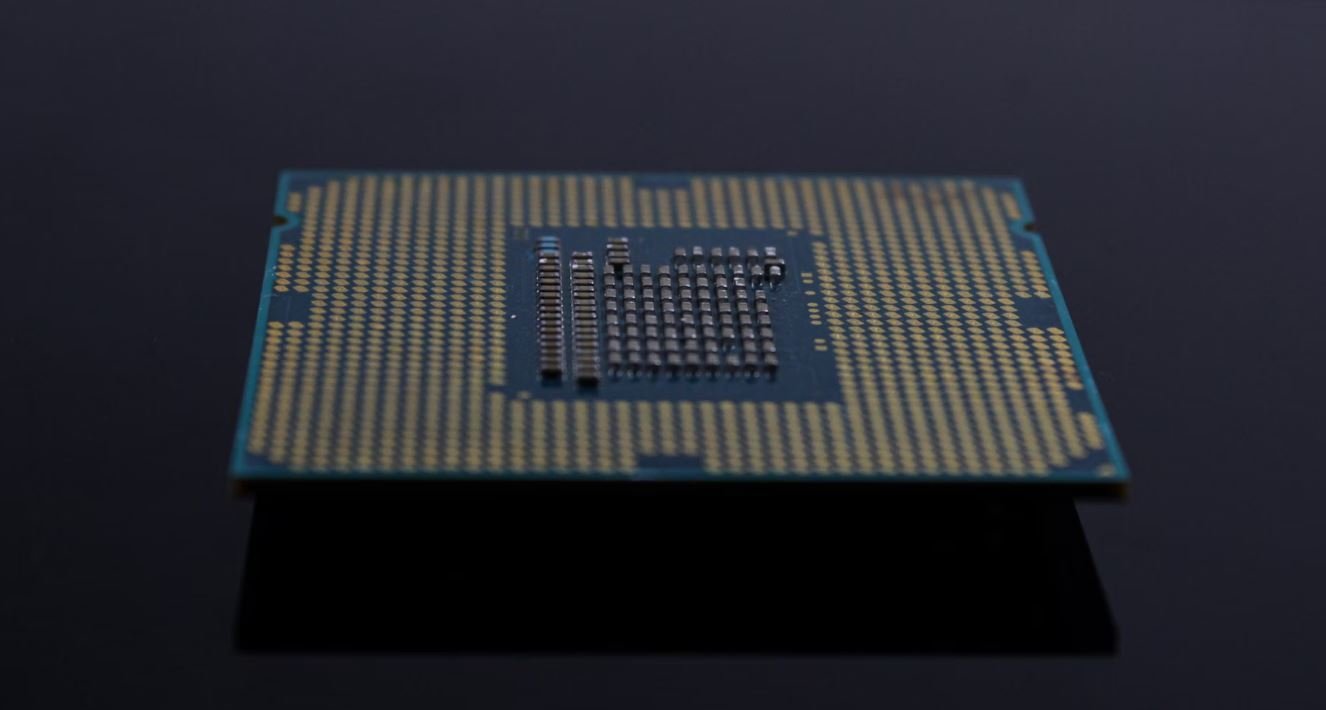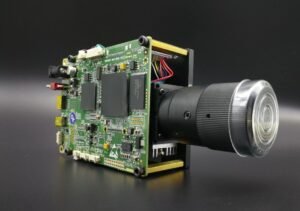AI Software Engineer Job Description
An AI software engineer is a professional responsible for developing and implementing AI technologies, such as machine learning algorithms and natural language processing systems, into software applications. AI software engineers work closely with data scientists, software developers, and other stakeholders to design, build, and deploy intelligent solutions that drive innovation and enhance user experiences.
Key Takeaways
- AI software engineers develop and implement AI technologies into software applications.
- They collaborate with data scientists, software developers, and stakeholders to create intelligent solutions.
- Skills required include programming, machine learning, and problem-solving abilities.
- Knowledge of AI frameworks, such as TensorFlow and PyTorch, is essential.
- AI software engineers must stay updated with the latest advancements in AI technology.
Responsibilities of an AI Software Engineer
An AI software engineer is responsible for a variety of tasks throughout the development lifecycle of AI-powered software applications. These responsibilities may include:
- Designing, implementing, and testing AI models and algorithms.
- Collaborating with data scientists to develop data pipelines and prepare training datasets.
- Optimizing and fine-tuning machine learning models to ensure optimal performance.
- Integrating AI technologies into existing software systems and platforms.
- Identifying and resolving technical issues and bugs.
*AI software engineers work closely with data scientists to develop accurate and effective machine learning models.
Qualifications and Skills
To excel in the role of an AI software engineer, certain qualifications and skills are necessary. These may include:
- A strong background in computer science or a related field.
- Proficiency in programming languages such as *Python and Java.
- Experience with AI frameworks and libraries, such as *TensorFlow and PyTorch.
- Understanding of machine learning algorithms and statistical analysis techniques.
- Problem-solving and critical-thinking abilities.
- Excellent communication and teamwork skills.
Education and Certification
While formal education requirements can vary depending on the organization, most AI software engineer positions require at least a bachelor’s degree in computer science, computer engineering, or a related field. Some employers may prefer candidates with a master’s degree or higher. Additionally, certifications in AI and machine learning, such as the *Microsoft Certified: Azure AI Engineer Associate or the *Google Cloud Certified – Professional Data Engineer, can demonstrate expertise and enhance job prospects.
Salary and Job Outlook
The demand for AI software engineers is skyrocketing as more industries adopt AI technologies. According to the U.S. Bureau of Labor Statistics, the median annual wage for software developers, including AI engineers, was $107,510 as of May 2020. The job outlook for software developers is projected to grow 22% from 2019 to 2029, much faster than the average for all occupations.
| Occupation | Median Annual Salary (May 2020) |
|---|---|
| AI Software Engineer | $107,510 |
| Software Developer (General) | $110,140 |
| Data Scientist | $98,230 |
*AI software engineers tend to earn comparable salaries to software developers in general.
Conclusion
In the constantly evolving field of AI software engineering, professionals play a crucial role in developing intelligent solutions and driving innovation. The demand for AI software engineers is expected to continue growing, making it an exciting and rewarding career choice for individuals with the right skills and qualifications.

Common Misconceptions
1. AI Software Engineers only work on cutting-edge technology.
One common misconception about AI software engineering is that it only involves working on the latest and most advanced technological advancements. While AI engineers do work on innovative projects, they also work on existing technologies to improve and optimize them.
- AI software engineers often spend a significant amount of time maintaining and enhancing existing AI systems.
- Working on existing technology allows engineers to apply new techniques and algorithms to make them more efficient.
- It is essential for AI software engineers to have a deep understanding of both existing and emerging technologies to create robust and scalable AI solutions.
Another misconception about AI software engineers is that their primary focus is solely on developing machine learning algorithms. While machine learning is a crucial aspect of AI, there is much more to the job description than just algorithms.
- AI software engineers must possess a solid understanding of computer science and programming languages to develop efficient software applications.
- They also need to have expertise in data engineering and data management to handle large datasets efficiently.
- Problem-solving skills, software development methodologies, and system architecture are some other essential areas of their expertise.
3. AI Software Engineers will replace traditional software engineers.
Some people believe that AI software engineers will replace traditional software engineers. However, this is not entirely true. While the demand for AI engineers is increasing, traditional software engineering skills and roles are still valuable and necessary in the industry.
- Traditional software engineers specialize in developing software applications that may not involve AI technologies.
- AI software engineers often work in collaboration with traditional software engineers to integrate AI functionalities into existing systems.
- Both AI and traditional software engineers complement each other’s skills and contribute to the development of robust and efficient software solutions.
4. AI Software Engineers work alone on projects.
Contrary to popular belief, AI software engineers rarely work alone on projects. The development of AI systems and applications requires a collaborative approach involving various professionals.
- AI projects often involve cross-functional teams, including data scientists, domain experts, data engineers, and software architects.
- AI software engineers collaborate with data scientists to select appropriate algorithms and develop models based on the project requirements.
- They work closely with software architects to ensure the integration of AI functionalities into the overall system architecture.
5. AI Software Engineers only work on advanced research projects.
Lastly, it is a misconception that AI software engineers only work on advanced research projects in academia or big tech companies. While those opportunities exist, AI engineering roles are becoming more prevalent across various industries.
- AI applications are being utilized in healthcare, finance, transportation, and many other sectors.
- AI software engineers work on developing AI solutions for practical applications that can improve efficiency, productivity, and customer experiences.
- From startups to large corporations, there is a growing demand for AI engineers in all industries looking to leverage the power of AI to solve complex problems.

AI Software Engineer Job Description – Skills Required
As artificial intelligence (AI) continues to advance, the demand for skilled AI software engineers is on the rise. These professionals are responsible for designing, developing, and implementing AI algorithms and applications. Here are the top 10 skills required for an AI software engineer.
| Skill | Description |
|---|---|
| Machine Learning | Expertise in designing and implementing machine learning algorithms used in AI models. |
| Deep Learning | Knowledge of deep learning architectures, such as neural networks, for complex AI tasks. |
| Natural Language Processing | Understanding and experience in processing and analyzing human language for AI applications. |
| Python | Mastery of the Python programming language, widely used for AI development. |
| Data Science | Proficient in statistical analysis, data visualization, and utilizing large datasets. |
| Algorithm Design | Ability to create efficient and scalable algorithms to solve complex AI problems. |
| Problem-Solving | Aptitude for identifying and resolving technical challenges in AI development. |
| Software Development | Experience in software engineering principles and practices for robust AI systems. |
| Computer Vision | Familiarity with computer vision techniques for applications such as image recognition. |
| Big Data | Capability to manage and process large volumes of data in AI workflows. |
AI Software Engineer Job Description – Educational Requirements
To become an AI software engineer, a strong educational background is crucial. Here are the educational requirements typically sought after in this field.
| Degree | Description |
|---|---|
| Bachelor’s in Computer Science | A solid foundation in computer science concepts, algorithms, and programming languages. |
| Master’s in Artificial Intelligence | Specialized knowledge in AI theories, algorithms, and practical applications. |
| Ph.D. in Machine Learning | In-depth expertise in machine learning research and advanced AI concepts. |
| Data Science Certification | Add-on certifications in data science may enhance the candidate’s AI credentials. |
| Bootcamp Training | Intensive AI training programs can be an alternative path to gain practical skills. |
| Continuing Education | Continuous learning and staying updated with new AI methodologies is important. |
AI Software Engineer Job Description – Average Salary
The monetary aspect plays an important role in job considerations. Here is the average salary range for AI software engineers based on experience.
| Experience Level | Average Salary (USD) |
|---|---|
| Entry-level (0-2 years) | $70,000 – $90,000 |
| Mid-level (2-5 years) | $90,000 – $120,000 |
| Senior-level (5+ years) | $120,000 – $150,000+ |
AI Software Engineer Job Description – Popular Industries
AI software engineers can find employment opportunities in various industries. Here are some of the popular industries where AI expertise is in high demand.
| Industry | AI Applications |
|---|---|
| Healthcare | Medical diagnostics, patient monitoring, drug discovery |
| Finance | Algorithmic trading, fraud detection, risk assessment |
| Technology | Autonomous vehicles, virtual assistants, image recognition |
| Retail | Customer behavior analysis, inventory management, chatbots |
| Manufacturing | Quality control, predictive maintenance, supply chain optimization |
AI Software Engineer Job Description – Job Outlook
The job outlook for AI software engineers is exceptionally promising. The following table showcases the projected growth rate for AI-related occupations.
| Occupation | Projected Growth Rate (2019-2029) |
|---|---|
| Software Developers | 22% |
| Data Scientists | 16% |
| Machine Learning Engineers | 9% |
| Research Scientists | 15% |
| Information Security Analysts | 31% |
AI Software Engineer Job Description – Notable Companies
Working for renowned AI companies can provide excellent opportunities for AI software engineers. Here are some notable companies leading the AI industry.
| Company | AI Initiatives |
|---|---|
| Google Assistant, Google Translate, autonomous driving (Waymo) | |
| Automated content filtering, facial recognition, natural language processing | |
| Amazon | Alexa, recommendation systems, drone delivery (Amazon Prime Air) |
| Microsoft | Cortana, Azure Cognitive Services, machine learning framework (ONNX) |
| IBM | Watson, healthcare technology solutions, AI research division (IBM Research) |
AI Software Engineer Job Description – Impact on Society
The growing presence of AI has a significant impact on various aspects of society. Here are some ways AI software engineering contributes to societal development.
| Impact | Description |
|---|---|
| Improved Healthcare | AI aids in faster diagnosis, personalized treatments, and drug discovery. |
| Enhanced Efficiency | AI automates tedious tasks, streamlines processes, and optimizes operations. |
| Smart Cities | AI-driven solutions enable efficient urban planning, energy management, and transportation systems. |
| Increased Productivity | By augmenting human capabilities, AI accelerates productivity across industries. |
| Ethical Considerations | Maintaining responsible AI development to address bias, privacy, and ethical concerns. |
AI Software Engineer Job Description – Conclusion
AI software engineering is an exciting and lucrative field that offers a range of opportunities to individuals with the necessary skills. As AI continues to revolutionize industries, the need for talented AI software engineers remains strong. By acquiring the required skills and education, aspiring AI software engineers can embark on a rewarding career path in a variety of industries. The future looks bright for those who seek to create and innovate within the realm of artificial intelligence.
Frequently Asked Questions
What is the job description of an AI Software Engineer?
An AI Software Engineer is responsible for designing, developing, and implementing AI-based software systems. They work on creating intelligent algorithms and models, analyzing large datasets, and building machine learning models for various applications.
What are the primary responsibilities of an AI Software Engineer?
An AI Software Engineer is responsible for designing and improving AI algorithms and models, implementing machine learning solutions, collaborating with cross-functional teams, deploying AI systems, optimizing models for performance, and staying updated with the latest advancements in AI.
What qualifications are required for an AI Software Engineer?
Typically, an AI Software Engineer is required to have a bachelor’s or master’s degree in computer science, software engineering, or a related field. They should have a strong understanding of machine learning principles, experience in programming languages like Python or R, and proficiency in tools and frameworks like TensorFlow or PyTorch.
What skills are essential for an AI Software Engineer?
Essential skills for an AI Software Engineer include knowledge of machine learning algorithms, statistical modeling, data analysis, programming languages, deep learning frameworks, natural language processing, problem-solving abilities, and strong communication and collaboration skills.
What industries or sectors require AI Software Engineers?
AI Software Engineers are in demand across various industries, including finance, healthcare, technology, e-commerce, gaming, robotics, automotive, and more. Any industry that aims to leverage AI technologies to enhance operations or create innovative products and services may require AI Software Engineers.
What are the career prospects for an AI Software Engineer?
The career prospects for AI Software Engineers are quite promising. With the increasing adoption of AI technologies, the demand for skilled professionals in this field is expected to grow significantly. AI Software Engineers can work as AI researchers, machine learning engineers, data scientists, AI consultants, or even pursue entrepreneurship in AI-based startups.
What is the average salary of an AI Software Engineer?
The average salary of an AI Software Engineer can vary depending on factors such as experience, location, and the industry in which they work. However, in general, AI Software Engineers tend to earn higher-than-average salaries due to the specialized skills required in this field.
What are the future trends and challenges in the field of AI Software Engineering?
The field of AI Software Engineering is evolving rapidly, with several future trends and challenges. Some of the trends include explainable AI, ethical considerations in AI development, advancements in deep learning and reinforcement learning, and the integration of AI technologies with other emerging technologies like IoT and blockchain. Challenges include data privacy concerns, bias in AI systems, scalability of models, and the need for continuous learning and adaptation.
How can I become an AI Software Engineer?
To become an AI Software Engineer, you can start by acquiring a solid foundation in computer science and programming. Pursue a bachelor’s or master’s degree in relevant fields, gain knowledge and experience in machine learning, data analysis, and AI frameworks, and work on personal projects or internships to showcase your skills. Continuous learning and staying updated with the latest advancements in AI technologies are also crucial.
Are there any certifications that can enhance my career as an AI Software Engineer?
There are several certifications available that can enhance your career as an AI Software Engineer. Some popular ones include the TensorFlow Developer Certificate, AWS Certified Machine Learning – Specialty, Microsoft Certified: Azure AI Engineer Associate, and Google Cloud Certified – Professional Data Engineer.





